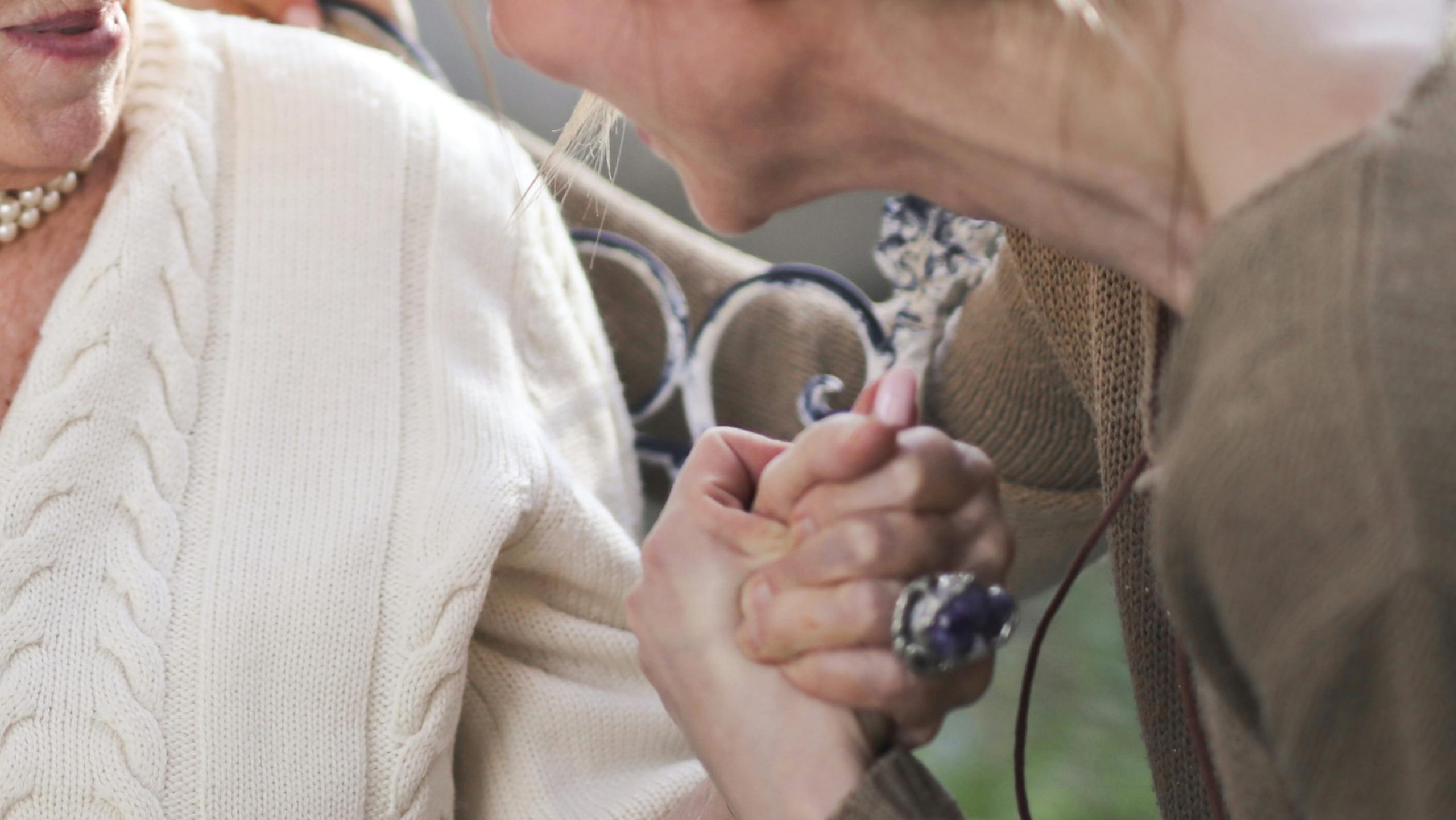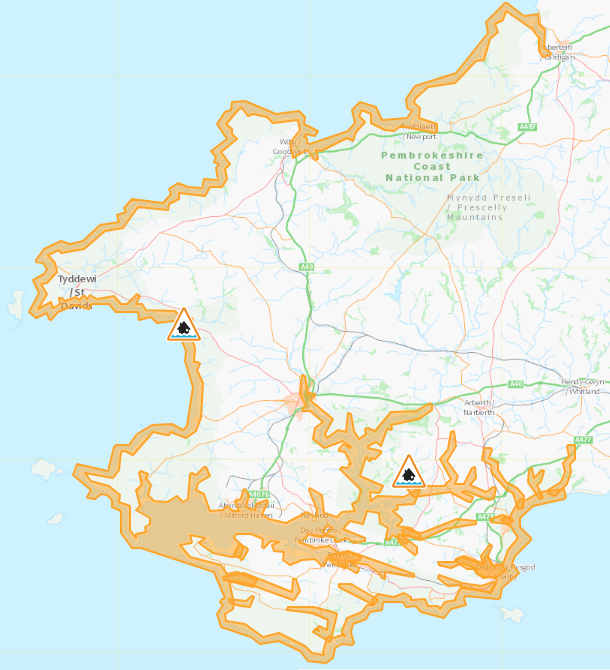Top News
Has local MP bitten off more than he can chew with visit to Domino’s?

Local MP Henry Tufnell may have bitten off more than he can chew after posting pictures of himself serving pizza at the Haverfordwest branch of Domino’s.
The Labour MP for Mid and South Pembrokeshire donned the Domino’s baseball cap and apron to dish out the pepperonis in a bid to see how local businesses are thriving.
But what Tufnell may have overlooked is the fact that in November 2024, Domino’s had a market cap of a whopping $15.65 billion USD, which makes it the world’s 1,195th most valuable company by market capitalization.
It trades from over 1,300 outlets in the UK and over 20,500 worldwide.
“I had a fantastic visit to Domino’s in Haverfordwest last week!” the MP enthused in his social media post.
“A big thank you to [the Domino’s staff] for taking the time to show me around and share the incredible work they do.
“It’s inspiring to see local businesses thriving and providing great service to our community’.”
The local community however, believes that Tufnell’s actions may have turned a blind eye to independent businesses – including farmers – who are desperately struggling to keep their heads above water.
“This strikes me as tone deaf,” commented Andy Richardson. “Henry Tufnell has a huge constituency of farmers who are worried sick about the inheritance tax changes which he, as a member of a landowning family, should understand. He also has small, independent, local, non-franchised businesses which are already under the cosh and are now being hit by the Employers’ NIC increases.”
And Donna Humphrey called on the MP to cast his eye across other social sectors instead of multi-international bigwigs like Domino’s.
“If visiting a franchise is a priority for you, rather than local charities, independent businesses, hospitals, education and farming , that says it all,” she said.
“There are so many other pressing issues such as homelessness, food banks, mental health services, accessing GPS, community care, impact of the budget on charities…but sadly you choose pizza.”
Henry Tufnell’s post has also raised the hackles of local, independently-owned pizzeria owners, including world champion chef Giovanni Recchia who runs Gio Recchia Pizzeria in Pembroke with his business partner, Denise Phillips.
“He should have supported all those local businesses which are operating from their communities here in Pembrokeshire,” Denise told The Pembrokeshire Herald.
“So many people are trying their hardest to keep their heads above water. Surely it’s these that should be shown the support and recognition from their MP?
“We are doing everything we can to support our community, and all our staff are local. If Henry Tufnell had chosen to walk through our door, we would have been more than happy to welcome him.”
Giovanni Recchia is recognised as one of the world’s finest pizza chefs after clinching the World Champion Chef title in the championships Rimini, Italy, in 2023.
Domino’s Pizza Group plc said: “We are the UK’s leading pizza brand.”
“The Domino’s business is built on the entrepreneurial drive and operational expertise of our franchise partners.
“We choose our franchise partners carefully for their commitment and entrepreneurial approach.
“Franchise partners sign a Standard Franchise Agreement (SFA) for each store. We work closely with them to choose the right locations. We then enter into the head leases, which we sub-let to the franchisee.
“We charge our franchise partners a royalty fee of their sales, some of which we pass on to Domino’s Pizza International Franchising Inc. as a royalty cost.
“We invest in our digital customer facing platforms, which makes ordering easier, drives higher loyalty, frequency of purchase and increased order values.”
Henry Tufnell MP commented on Monday evening.
He said: “Domino’s locally is owned by a franchisee who owns a store in Haverfordwest, Neyland and Tenby.
“Domino’s owns a franchise model where individual franchisees own Domino’s stores under the large Domino’s Pizza Brand.
“This empowers entrepreneurs to manage their own business.
“The owner of these franchises employs local people in all year round employment and any business that supports workers and helps with high street decline is a positive step in the right direction.”
Community
Wales launches plan to become ‘Carer Aware’ nation

Consultation invites unpaid carers across the country to shape new national strategy
THE WELSH GOVERNMENT has unveiled plans to make Wales a “Carer Aware” nation, with a new public consultation launched today (Monday, Feb 2) aimed at improving recognition and support for the country’s thousands of unpaid carers.
Ministers say the move is designed to ensure people who look after relatives, friends or neighbours are identified earlier and treated as partners in decisions about the care of their loved ones.
A draft National Strategy for Unpaid Carers has been developed with input from hundreds of carers and representative groups across Wales. It sets out eight key priorities, including better recognition of carers’ roles, improved access to respite and short breaks, stronger wellbeing support, and measures to prevent young carers from carrying too much responsibility.
Under the proposals, carers of all ages and backgrounds — including disabled carers and those in minority communities — would be able to access clear, local information and help when they need it.
Officials say earlier identification is critical, so carers can receive advice, financial guidance and emotional support from the start of their caring journey, rather than only at crisis point.
The strategy also stresses the need for sufficient alternative care arrangements to allow carers time to rest and protect their own health.
Dawn Bowden, Minister for Children and Social Care, said many carers do not even see themselves as carers.
“Too often, unpaid carers go unrecognised – even by themselves. They’re simply ‘looking after mum’ or ‘helping out a friend’, but caring can have a profound impact on people’s finances, careers, health and wellbeing,” she said.
“We want Wales to be a place where carers are identified early, where they know their rights, and where they’re treated as partners for the person they care for.
“This consultation is important in shaping a strategy which takes into full account how carers feel and how they’re supported. I’d encourage everyone with an interest to provide their views.”
The consultation is open now and runs until April 13, with responses helping to shape the final strategy and future support services across Wales.
People can take part online via the Welsh Government website.
News
Bus services reform becomes law across Wales

Landmark legislation gives public sector greater control as rollout set to begin in southwest Wales in 2027
LOCAL bus services across Wales are set for their biggest overhaul in decades after new legislation formally became law this week.
The Bus Services (Wales) Bill received Royal Assent on Monday (Feb 2), with the Welsh Government saying the changes will transform how routes are planned and delivered, putting passengers and communities ahead of profit-led timetables.
The legislation was sealed at a ceremony in Cardiff by First Minister Eluned Morgan, marking what ministers describe as a “historic day” for public transport.
The law gives the public sector a stronger role in shaping bus networks, allowing services to be designed around local needs in both rural and urban areas. Instead of relying solely on commercial operators deciding routes, councils and regional bodies will be able to coordinate and plan services more directly.
The Transport for Wales will work alongside local authorities, Corporate Joint Committees, bus companies, unions and residents to redesign networks using local knowledge.
Buses remain a vital link for many communities, particularly in rural parts of west Wales where alternatives are limited. They connect people to jobs, schools, hospitals and town centres.
Eluned Morgan said: “This is a historic day for public transport in Wales – it sends out a clear message that we are committed to improving the bus system and delivering better, more reliable services for the people of Wales.
“Buses are lifelines for many communities across Wales connecting people to jobs, health services, education and friends, and I’m excited to see the improvements that are coming.”
Cabinet Secretary for Transport and North Wales, Ken Skates, said the changes marked “the beginning of a new era”.
He added: “These changes won’t be seen overnight, it’s going to take time, but we are working closely with the industry and local authorities to plan and deliver bus services to meet the needs of passengers today and for generations to come.”
The rollout will be phased, starting in southwest Wales in 2027, followed by north Wales in 2028, southeast Wales in 2029 and mid Wales in 2030.
Ministers say the aim is to deliver more reliable timetables, better coverage and services that reflect what communities actually need – rather than what is most commercially viable.
Community
Flood alert issued for Pembrokeshire coast this evening

Pembrokeshire residents are being urged to prepare for possible flooding along the coastline between St Dogmaels, Cardigan and Amroth, after Natural Resources Wales issued a Flood Alert.
The alert warns that rising water levels could pose a risk to homes, vehicles and livestock, and advises people to take precautions now. Authorities are reminding residents to follow their flood plans, check on family, friends and pets, and ensure essential items and documents are protected.
Residents are also advised to keep mobile phones charged, know how to turn off electricity, gas and water supplies, and prepare a small emergency bag with items such as medication, warm clothing, baby and pet care essentials, and insurance documents. Vehicles, livestock and equipment should be moved from areas likely to flood if possible.
Safety warnings are clear: do not drive or walk through floodwater. Just 30 cm (1 foot) of water can carry a car away, and 15 cm can knock a person off their feet.
For more information, residents can visit Natural Resources Wales – Flood Warnings, check river and sea levels online, or contact Floodline on 0345 988 1188 (quick dial 503013). Updates are also available via @NatResWales on social media.

-

 Health4 days ago
Health4 days agoConsultation reveals lack of public trust in health board
-

 News5 days ago
News5 days agoCaldey still unsafe, survivors warn — despite Abbey’s reform claims
-

 Community5 days ago
Community5 days agoPembrokeshire students speak at national Holocaust Memorial Day event
-

 Local Government7 days ago
Local Government7 days agoTribunal over former Neyland councillor’s conduct adjourned
-

 News5 days ago
News5 days agoKurtz raises Gumfreston flooding in the Senedd as petition deadline nears
-

 Entertainment6 days ago
Entertainment6 days agoRapunzel brings festive magic to Torch Theatre
-

 Education5 days ago
Education5 days ago‘Vulnerable teen’ questioned by police at Milford Haven School
-

 Crime6 days ago
Crime6 days agoMan denies murdering brother as jury hears of ‘ferocious attack’ at Morriston flat

























